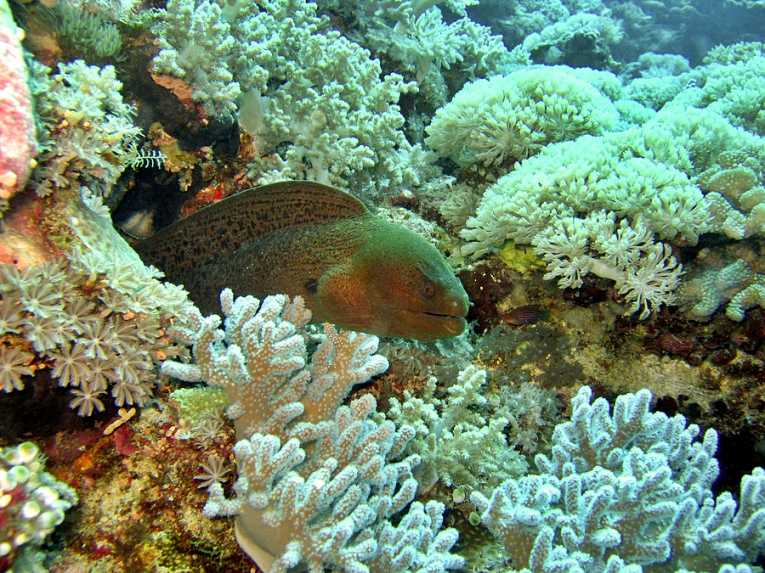Coral reefs that appear healthy may in reality be heading for collapse, according to the results of a study published recently in the early online edition of the Proceedings of the National Academy of Sciences. The study by the Wildlife Conservation Society and other groups showed that overfished reefs undergo a series of at least eight important changes before final collapse.
Each step, like throwing a switch to shut off the lights, leads to a dimmer chance that the reef will recover. An international team of scientists collaborated to study reef systems across the western Indian Ocean, where they discovered that overfishing causes pressures on reefs that lead to predictable, and increasingly more severe, declines in the health of the ecosystem. By understanding the nature of these points of no return, it should be possible to for local fisherman to coexist with the reefs they depend on, the report suggests.
"The good news is that a reef can likely provide sustainable fisheries even after the first three warning switches are turned off," said Dr. McClanahan, "but it becomes increasingly difficult to maintain a healthy fishery and restore reefs when the final five switches have been turned off."

Image: Researchers from the Wildlife Conservation Society and other groups have found that reefs with high coral cover may in fact be close to collapse, particularly those with a lack of fish. A recent study by WCS and its partners have found a predictable sequence of eight changes that precede a coral reef collapse; Credit: Nick Graham
It's all about maintaining sufficient numbers of fish to provide for the health of the reef. Reefs are complicated ecosystems composed of numerous interdependent species. Overfishing removes a key component of the system, allowing other components to overpower the delicate balance, upsetting the cycles of life on the reef. But some fishing can be tolerated. And that's the key to sustainability, say researchers. "This study provides managers and policy makers with a tangible target of where to maintain their fishery," noted Dr. McClanahan.
According to data collected by the far-ranging research teams, protected, normal, healthy reefs contain about 1,000 to 1,500 kilos (2,200 to 3,300 lbs.) of fish per hectare (about 2-1/2 acres). Early warning signs of overfishing include increased sea urchin activity and seaweed growth. By the time the mass of fish in a given hectare of reef has declined to within 300 - 600 kg. (661 - 1,323 lbs.) the reef has reached a crucial threshold -- what researchers call a window -- that must not be crossed. Any fewer fish will precipitate the inevitable collapse of the reef system.
"People depend on reefs for their livelihoods, so we can't prohibit fishing everywhere," said Dr. Joshua Cinner from James Cook University in Australia. "A key finding from our study was that even easily enforceable regulations that restrict gear or the types of species that can be caught helped maintain biomass. These regulations are often more agreeable to fishermen than no-take closures and consequently receive higher levels of support and compliance."
Top Image Credit: © pufferfishy










